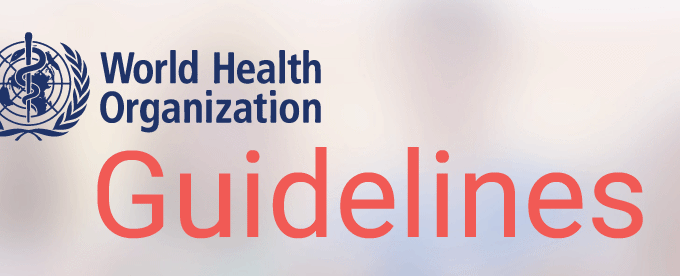
WHO – New WHO guidelines promote healthy lifestyle to reduce risk of dementia
New WHO guidelines released on 14 May 2019 advocate physical activity and a healthy lifestyle as important strategies to prevent dementia. “Unfortunately, many people with dementia are diagnosed too late, and treatment options are then less effective. Since dementia remains a condition without a cure, early detection, treatment, care and support are key in terms of an effective public health response. Risk reduction strategies, such as pursuing a healthy lifestyle through regular exercise and by not smoking, are also very important,” comments Bente Mikkelsen, Director of the Division of Noncommunicable Diseases and Promoting Health through the Life-course, WHO/Europe.
Used as an umbrella term for a range of symptoms caused by a disease or other brain injuries, dementia leads to a gradual decline in intellectual functioning – affecting a person’s memory, cognitive capacities and ability to engage in daily activities.
In the words of Dr Daniel Chisholm, Programme Manager for Mental Health at WHO/Europe, “the new guidelines show that we need to act on the behaviours that increase the risk of dementia such as smoking, physical inactivity and unhealthy diet, in the same way we do for diseases like cancer, diabetes and stroke”.
Estimated 10 million people suffering from dementia in the WHO European Region
WHO estimates that nearly 50 million people worldwide are suffering from dementia, with the number of affected people expected to jump to 75 million over the next decade.
In the WHO European Region, some 10 million people are estimated to have dementia and yet only 16 out of 53 Member States in the Region have so far developed a national action plan for dementia, with some countries such as Bulgaria, Czechia and Slovenia struggling with a shortage of sufficiently trained health workers to deal with the disease.
This indicates an insufficient level of preparedness to respond effectively to this public health challenge in the Region.
Tools and guidelines to support countries
In response to this public health challenge, the World Health Assembly adopted the Global Action Plan on the Public Health Response to Dementia 2017–2025. WHO Member States are also urged to develop and implement their own national plans.
To assist implementation of the Global Action Plan by Member States, WHO has developed a number of technical tools and guides. In addition to the newly released “Guidelines for risk reduction of cognitive decline and dementia”, the tools include the policy guide “Towards a dementia plan”, which provides a step-by-step process through which national authorities and stakeholders can identify needs, priorities and a local framework for action.
WHO has also established – and hosts – the Global Dementia Observatory for policy-makers and researchers to facilitate inter-country monitoring and sharing of information on dementia policies, service delivery, epidemiology and research.
Tackling dementia in the context of ageing populations
The population in the WHO European Region is ageing rapidly and the number of people suffering from dementia will therefore increase significantly.
Bulgaria, for example, has one of the oldest and fastest-ageing populations in the Region, with 100 000 people suffering from some form of dementia. While the country has not yet adopted a national dementia plan, a new national dementia strategy is now being planned. In the meantime, the Bulgarian Society of Dementia has been providing education and training programmes for general practitioners so that they are better equipped to diagnose and treat dementia earlier in the course of the disease.
In Czechia, a revised national action plan for dementia is being developed, following key elements of the WHO guide, “Towards a dementia plan”. It is expected to be launched later this year.
Slovenia, on the other hand, launched its national strategy for dementia in 2016, and is now well advanced in implementation of its key objectives and components, which involves several governmental sectors and local stakeholders.
Implementing dementia plans calls for concerted action across sectors and will need to include the education and continued training of general practitioners and other health workers, as well as continued and improved data collection and observation.
- WHO Guidelines for risk reduction of cognitive decline and dementia (2019)
- WHO Global Dementia observatory (2017)
- Towards a Dementia Plan: a WHO guide (2018)
- WHO Global Action Plan on The Public Health Response to Dementia 2017-2025 (2017)
- Jannie Sternberg – dementia care nurse and nurse coordinator, Denmark
- Fact sheet – Dementia
- Fact file – Dementia





